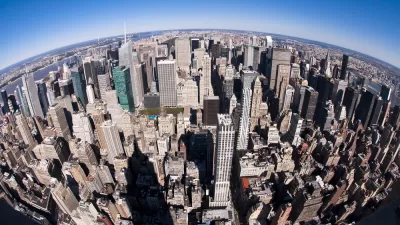Features like blank street facades literally turn us off, decreasing mental stimulation and bringing on restlessness and stress. Research points to worrying consequences for people who find their city, well, boring.

Colin Ellard, an environmental psychologist and neuroscientist, connects the bland facade of a Whole Foods store to study participants' lackluster mood. "These people were bored and unhappy. When asked to describe the site, words such as bland, monotonous and passionless rose to the top of the charts."
When asked about their experience roaming a more interesting locale, "the words that sprang to their minds were mixed, lively, busy, socialising and eating. Even though this site was so crowded with pedestrians that our participants struggled to find a quiet place to reflect on our questions, there was no doubt that this location was to their liking on many levels."
Ellard discusses why we prefer stimulating places, streets full of people and activity. It can even be argued that staid environments contradict our intelligence as a species. "At a psychological level, these constructions fail us because we are biologically disposed to favour locations defined by complexity, interest, and the passing of messages of one kind or another."
Maybe we accept un-ornamented, utilitarian spaces because we expend so much attention on the digital world. "But unless our electronic connections can supplant our physical surroundings, the widespread adoption of global, functional designs will have [negative] psychological consequences of the kind described here."
FULL STORY: Streets with no game

Planetizen Federal Action Tracker
A weekly monitor of how Trump’s orders and actions are impacting planners and planning in America.

Maui's Vacation Rental Debate Turns Ugly
Verbal attacks, misinformation campaigns and fistfights plague a high-stakes debate to convert thousands of vacation rentals into long-term housing.

Restaurant Patios Were a Pandemic Win — Why Were They so Hard to Keep?
Social distancing requirements and changes in travel patterns prompted cities to pilot new uses for street and sidewalk space. Then it got complicated.

In California Battle of Housing vs. Environment, Housing Just Won
A new state law significantly limits the power of CEQA, an environmental review law that served as a powerful tool for blocking new development.

Boulder Eliminates Parking Minimums Citywide
Officials estimate the cost of building a single underground parking space at up to $100,000.

Orange County, Florida Adopts Largest US “Sprawl Repair” Code
The ‘Orange Code’ seeks to rectify decades of sprawl-inducing, car-oriented development.
Urban Design for Planners 1: Software Tools
This six-course series explores essential urban design concepts using open source software and equips planners with the tools they need to participate fully in the urban design process.
Planning for Universal Design
Learn the tools for implementing Universal Design in planning regulations.
Heyer Gruel & Associates PA
JM Goldson LLC
Custer County Colorado
City of Camden Redevelopment Agency
City of Astoria
Transportation Research & Education Center (TREC) at Portland State University
Jefferson Parish Government
Camden Redevelopment Agency
City of Claremont





























